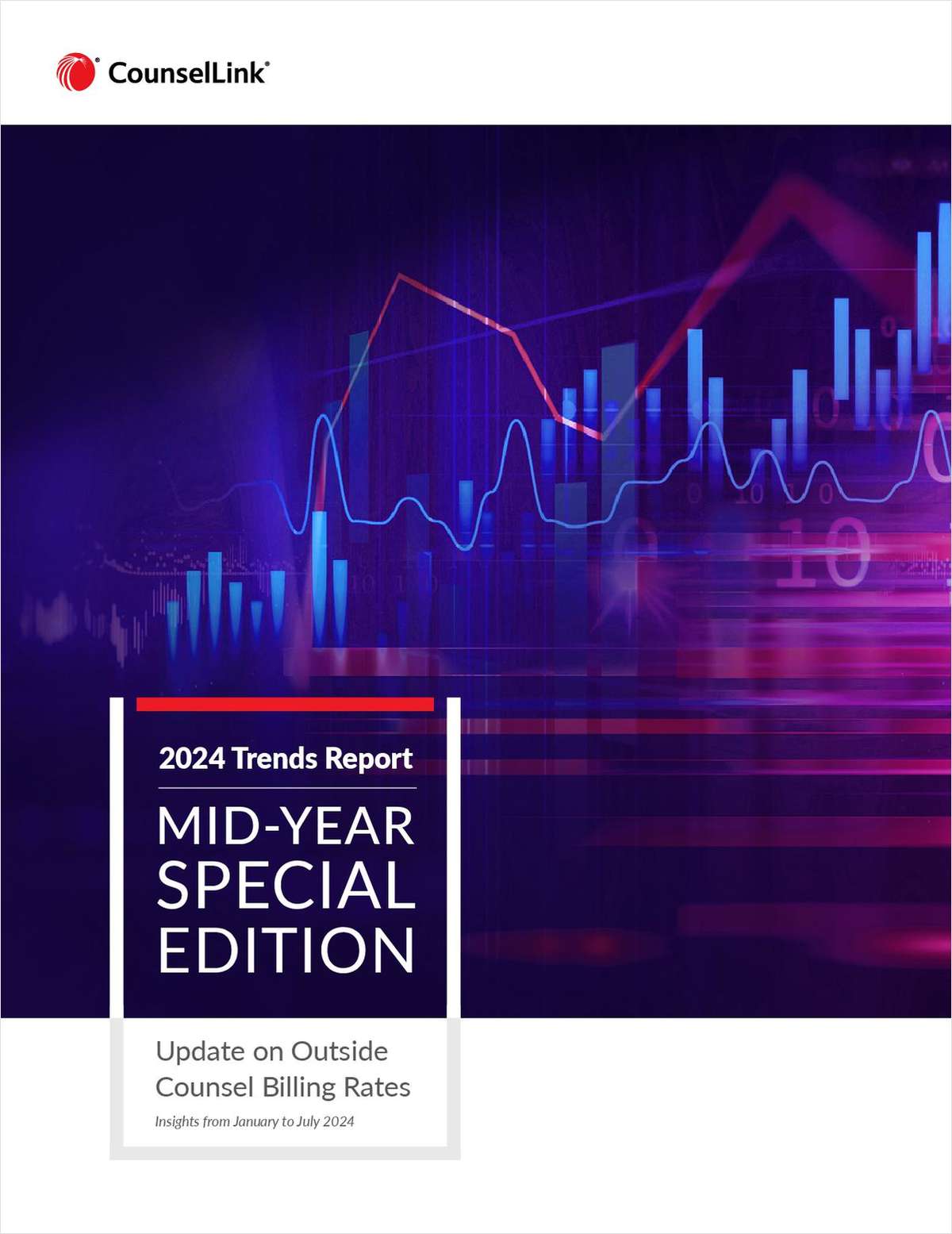Social Media Influencers Are Being Watched by FTC
As of late, social media influencers are on the Federal Trade Commission (FTC)’s radar because of the rise of social media being used as a marketing…
October 03, 2017 at 08:28 PM
4 minute read
The original version of this story was published on Law.com
As of late, social media influencers are on the Federal Trade Commission (FTC)'s radar because of the rise of social media being used as a marketing tool. Due to the high financial stakes involved and the influencers' ability to reach millions of consumers, the FTC is keeping a very close eye on influencer posts.
In fact, the FTC sent warning letters to over 90 social influencers and brands in April 2017 to remind them that, if there is a material connection between a brand and an influencer, then that connection must be disclosed or clear to consumers in materials where the influencer endorses the brand. This has been an increasing issue that needs to be addressed, given that the dollar amount of endorsement contracts between brands and social media influencers including celebrities, athletes and reality stars, who are bringing in as much as seven figures. And, violating FTC advertising requirements could cost influencers and brands a lot of money—not to mention their reputational.
In September 2017, the FTC sent follow-up letters to 21 of those influencers and cited specific social media posts by the influencers that concerned the FTC staff because they did not appear to include required “material connections” disclosures. The FTC requires that commercial relationships between influencers and brands be clearly disclosed or otherwise known to consumers.
Char Pagar, of VLP Law Group, sat down with Inside Counsel to discuss the issue of celebrity social media influencers.
“My experience is that brands – both startups and established brands — are increasingly turning to social influencers to get the word out about their products and services,” she explained. “As more brands spend more money in the space, I suspect the FTC wants to spend its attention in the space as well — so marketplace participants are aware that the traditional FTC rules that apply to material connections disclosures apply to endorsements made via this new technology as well.”
Marketers often carefully gather and utilize their resources – sometimes over the course of years – to build their brand and ensure that the brand means something of value to their customers. For their part, social influencers often take the same careful approach when building their own personal brands.
“The negative reaction from an FTC spotlight on a brand or influencer resulting an agency enforcement action can reduce or eliminate value that took a long time to build,” she said. “Prudent marketers realize this, and structure their marketing plans and relationships in ways that comply with the FTC's guidance to protect their own hard-earned brand value.”
The FTC recently announced its first enforcement action against social media influencers. In that case, they accused two social media influencers in the online gaming community of failing to disclose their ownership in an online gambling service that they endorsed. As more money and attention is spent in the social media space and with social media influencers, it only makes sense that the FTC will direct some of its enforcement resources and attention to that space, per Pagar.
So, what are some best practices for social media influencers to protect themselves?
According to Pagar, social media influencers should endeavor carefully to comply with the material connections disclosure standards outlined by the FTC. Brands should also consider having a written social media policy in place for third party advocates like social influencers, attaching that policy to written agreements with social influencers and social influencer agencies, training associates on compliance with that policy, auditing social media influencers for compliance with that policy on a regular basis. And, they should take appropriate actions against influencers who do not act in accordance with the policy.
This content has been archived. It is available through our partners, LexisNexis® and Bloomberg Law.
To view this content, please continue to their sites.
Not a Lexis Subscriber?
Subscribe Now
Not a Bloomberg Law Subscriber?
Subscribe Now
NOT FOR REPRINT
© 2024 ALM Global, LLC, All Rights Reserved. Request academic re-use from www.copyright.com. All other uses, submit a request to [email protected]. For more information visit Asset & Logo Licensing.
You Might Like
View All
Inside Track: Late-Career In-House Leaders Offer Words to Live by

In-House Leaders Trying to Contain Political Divisiveness Face Maze of Challenges
5 minute read
Meta Directors Accused of Deleting Emails Discussing Cambridge Analytica, FTC Settlement
3 minute read
FTC Bans Exec From Chevron Board—Exercising Authority It Doesn't Have, GOP Dissenters Say
5 minute readTrending Stories
Who Got The Work
Nicholas M. DePalma and Christian R. Schreiber of Venable have stepped in to represent CP Management Services, CRS RB4 Holdings and other defendants in a pending breach-of-contract lawsuit. The suit was filed Aug. 30 in Virginia Eastern District Court by Greenberg Traurig on behalf of Daito Kentaku USA. The case, assigned to U.S. District Judge Claude M. Hilton, is 1:24-cv-01538, Daito Kentaku USA, LLC v. Comstock Partners, LC.
Who Got The Work
Wyatt, Tarrant & Combs partner Andrew J. Pulliam has entered an appearance for Steve Jensen in a pending breach-of-contract lawsuit. The action, filed Aug. 30 in Tennessee Middle District Court by the Law Office of Perry A. Craft on behalf of Timothy Robins, accuses the defendant of writing a worthless check for over $94,000 for the sale of auctioned goods. The case, assigned to U.S. District Judge Eli J. Richardson, is 3:24-cv-01064, Robins v. Jensen et al.
Who Got The Work
Lane Powell shareholder Pilar C. French has entered an appearance for Penney OpCo LLC in a pending consumer class action. The complaint, filed Aug. 26 in Oregon District Court by Hattis & Lukacs, alleges that the company markets fictional discounts for certain products. The case, assigned to U.S. Magistrate Judge Mustafa T. Kasubhai, is 6:24-cv-01414, Gamble v. Penney OpCo LLC.
Who Got The Work
Donald L. Carmelite and Coryn D. Hubbert of Marshall Dennehey have stepped in to defend the City of York, Detective Roland Comacho and Detective Lisa Daniels in a pending civil rights lawsuit. The complaint, filed Aug. 27 in Pennsylvania Middle District Court by Levin & Zeiger on behalf of Noel Matos Montalvo, seeks damages for the amount of time that Montalvo was incarcerated over five years for the exonerated killing of his common law wife. The case, assigned to U.S. District Judge Jennifer P. Wilson, is 1:24-cv-01459, Montalvo v. City of York, et al.
Who Got The Work
Joseph M. Englert, Brian E. Pumphrey and M. Laughlin Allen of McGuireWoods have entered appearances for Bank of America NA in a pending class action. The action was filed Aug. 26 in Georgia Northern District Court by Podhurst Orseck; Webb, Klase & Lemond; Crabtree & Auslander; and Morrison + Associates on behalf of the representative of the beneficiaries of the Arthur N. Weinraub Trust, a trust which contains residential real property. The suit accuses the defendant of overcharging the trust by selecting unnecessary and/or excessively priced insurance for the property. The case, assigned to U.S. District Judge Thomas W. Thrash Jr., is 1:24-cv-03780, Weinraub v. Bank of America, N.A.
Featured Firms
Law Offices of Gary Martin Hays & Associates, P.C.
(470) 294-1674
Law Offices of Mark E. Salomone
(857) 444-6468
Smith & Hassler
(713) 739-1250








